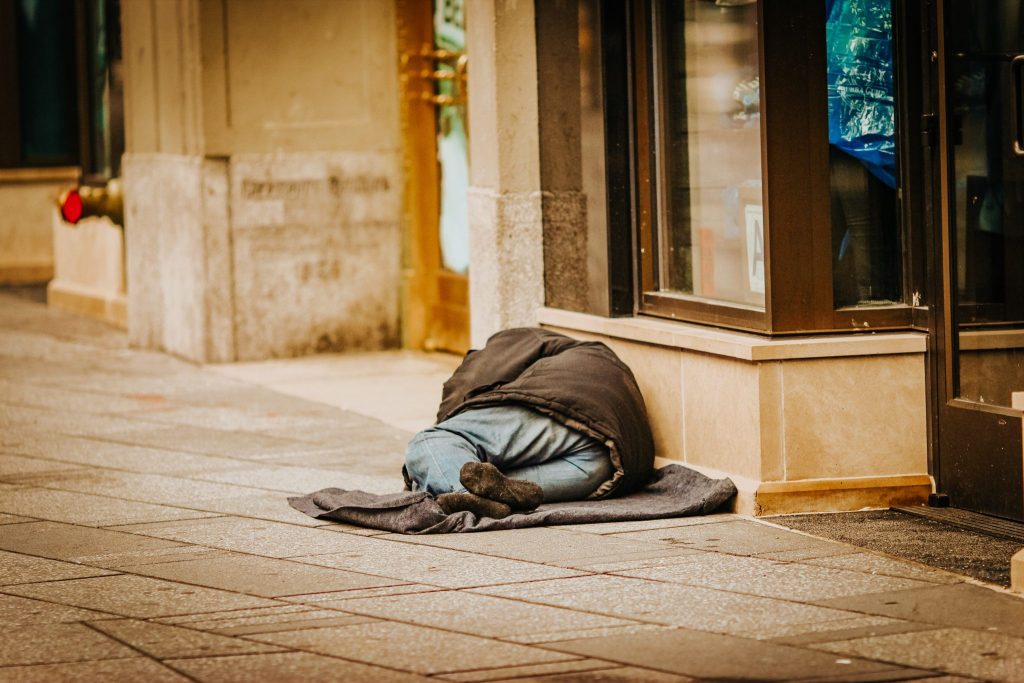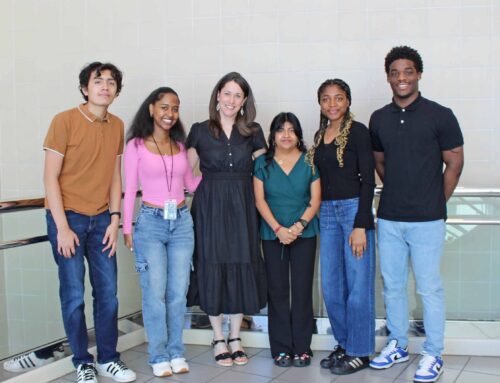
Unsplash: Jon Tyson
This week in Dallas marked the Metro Dallas Homeless Alliance annual remembrance of those experiencing homelessness who died over the course of the last year. In remarks, Metro Dallas Homeless Alliance spokesperson David Gruber reminded people to ask for help and called on other members of the community to get involved and volunteer.
“If you are currently experiencing homelessness, talk to a case manager or call the Homeless Crisis Help Line. Let’s get the process of getting you into housing started.”
The MDHA is in the midst of a historic public-private homeless rehousing program, about which they recently delivered a progress report.
In response to COVID-19, there is an unprecedented amount of funding — nearly $50 billion in essential housing and homelessness assistance — coming down from the federal government. Metro Dallas Homeless Alliance along with a bevy of local philanthropists are seizing the opportunity.
They say they will leverage allotted funds and collect private donations for an aggressive “rapid rehousing” initiative that will get 2,700 people off the street within the next two years. To do so, they needed — in addition to many federal dollars and housing vouchers — $10 million from donors, which they have now procured in full.
“The tremendous support shown by our local philanthropic community to support our rapid rehousing initiative is truly inspiring,” says Joli Robinson, CEO of MDHA. “ The impact of these gifts is sure to greatly increase our efforts in serving our unhoused neighbors, not only in meeting their housing needs, but also with much-needed wrap-around services.”
Gruber notes that the rest of the $72 million needed to accomplish the goal will come from federal American Rescue Plan Act dollars — The City of Dallas and Dallas County each allocated $25 million. MDHA, Dallas County and the cities of Mesquite and Grand Prairie contributed 758 emergency housing vouchers to the effort.
Among the top donors are Bank of America, Margot Perot and the Perot Family and W.W. Caruth, Jr. Fund at Communities Foundation of Texas and the Collaborative on Homelessness, group of Dallas funders led by the Meadows Foundation, also a leading contributor.
A full list of funders is available at mdhadallas.org.
The private donations will cover significant aspects of the program such as landlord incentives — payments made to landlords, often in the form of additional deposits, to induce landlords to accept tenants paying with subsidies, which they are not required to do under Texas law.
“Without these incentives, generating housing inventory would be significantly more challenging,” Gruber notes.
Money also goes toward move-in kits, providing clients with basic necessities such as a bed, linens, dishes, etc., he says, “without which they would be less likely to remain in the housing provided.”
The privately-raised dollars reportedly also will be used to fund needed administrative expenses necessary for partner agencies to manage the volume of clients they will be serving.
Margot Perot says she is honored to play a small role.
“It is heartbreaking to see so many of our neighbors suffering through the crisis of homelessness,” she says, calling this “a major step toward ending homelessness in our community.”
Communities Foundation of Texas CFO Dave Scullin calls the initiative the “definition of collective impact, with multiple governments, agencies and funding sources coming together to work as a team to tackle the vexing issue of homelessness.”
Peter M. Miller, President and CEO of The Meadows Foundation, says the effort presents a unique opportunity for philanthropic funders to “propel change by taking creative risks on new ideas.
“I am grateful to my colleagues and partners at the Collaborative on Homelessness for their willingness to join Meadows’ efforts to revamp our homeless response system and now to continue their generous support of DRTRR. It is incredible to see how far we have come.”
Kourtny Garrett, President & CEO of Downtown Dallas, Inc. (DDI), says the DDI Board of Directors “immediately recognized the historic opportunity that the rapid rehousing initiative presented, voting unanimously in July to allocate $500,000.
“We have full confidence that this program will be transformational for individuals experiencing homelessness in our urban core that our own Homeless Outreach Team members work with every day. Rather than criminalizing homelessness, our approach is to help people get back on a path to housing and a sustained recovery. DRTRR presents our best chance yet to make that happen on a large scale.”
Peter Brodsky, Board Chair of MDHA recognized the 100+ agencies of the Collaborative on Homelessness and their staffs, “who will be pulling the laboring oar as we work to house over 2,700 of our neighbors.”
More about the MDHA and the Dallas R.E.A.L Time Rapid Rehousing (DRTRR) initiative is on mdhadallas.org.





